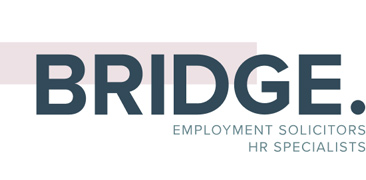GET EXPERT Grievance Support TODAY
From the start of employment, every individual wishing to make a complaint about his or her employment has the right to raise a grievance. As an employer, it is your duty to handle any grievance appropriately and in line with the ACAS Code of Practice. Unfavourable treatment of an employee that has raised a grievance, whether formal or informal, may be considered victimization and could result in them making a claim to the Employment Tribunal.
It is essential, therefore, that employers treat complaints seriously, checking with the complainant themselves if they wish their concern to be managed formally or informally. ACAS recognises that grievances can be formal or informal in nature and, where possible, will always encourage an employee to resolve a grievance with their employer informally.
TOP TIP: An informal grievance provides an excellent opportunity for an employer to try and resolve a matter without the need for formal prescriptive procedures. Always communicate clearly to the employee the action you will take to investigate their complaint, as well as when they can expect to receive a response, ensuring that you keep to this agreed date. Meet with them again at this time to outline your findings, express your thoughts and seek their views.
Please don’t hesitate to contact us directly if you are seeking advice on a formal or informal grievance. Even at the informal level it can be useful to prevent grievances from escalating unnecessarily by ensuring that all requirements have been met.
We can help with:
- Formulating a written acknowledgement of the grievance and next steps to be taken.
- Working with the employee to clarify the exact details of the grievance; ensuring accuracy by focusing on the key details.
- Creating written documents for employees and witnesses that clearly outline details and their degree of participation in the investigation.
- Offering advice throughout the grievance investigation process: deciding which questions you wish to ask the employee, identifying witnesses, outlining the legal entitlements of the employees and witnesses, determining what evidence needs to be gathered, and ensuring that the investigation is robust and requires no further enquiries.
- Assisting with the production of witness statements.
- Producing the grievance investigation report: ensuring that it is in the correct format and that it summarises the evidence and key facts of the case.
- Producing letters inviting the employee to the formal grievance hearing and ensuring the relevant documentation is provided.
- Crafting bespoke guidance notes to be used at the grievance hearing, which detail questions to be asked of the employee and methods of presenting the gathered evidence.
- Providing a note-taker for the hearing.
- Reviewing minutes taken from a grievance hearing and identifying if further questions need to be asked or if further investigations need to take place.
- Producing – or assistance in producing – an outcome letter subsequent to the hearing which: outlines the details of the grievance, summarises the investigation/formal hearing, and records the outcome of the grievance.
- Managing any appeals lodged: advising on the process of the appeal; producing guidance notes, letters inviting the employee to an appeal hearing and an outcome letter.
- If necessary, we are able to conduct the investigation on your behalf. This can be particularly useful where an independent party is required – if the grievance concerns a director or business owner, for example – or if there are time constraints. A full report of the investigation will always be provided.
Whether you wish us to conduct all of the above on your behalf or assist you in undertaking the grievance investigation by yourself is up to you – we are guided by your needs.
Grievance Support FAQS


